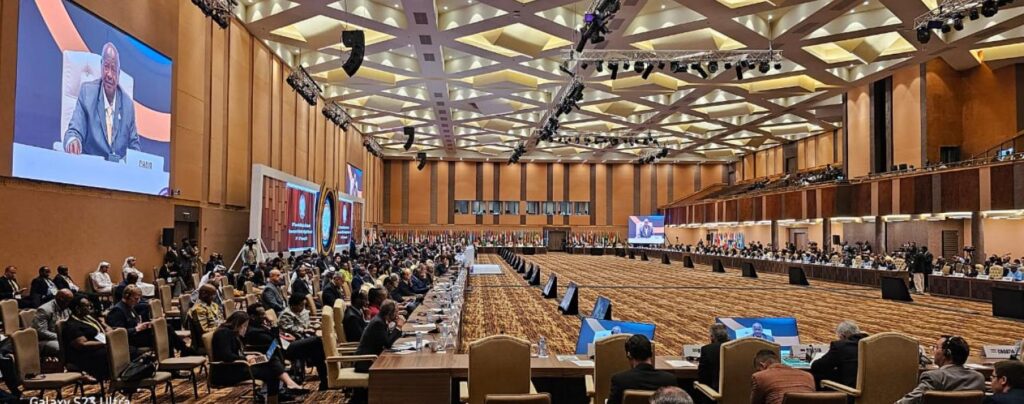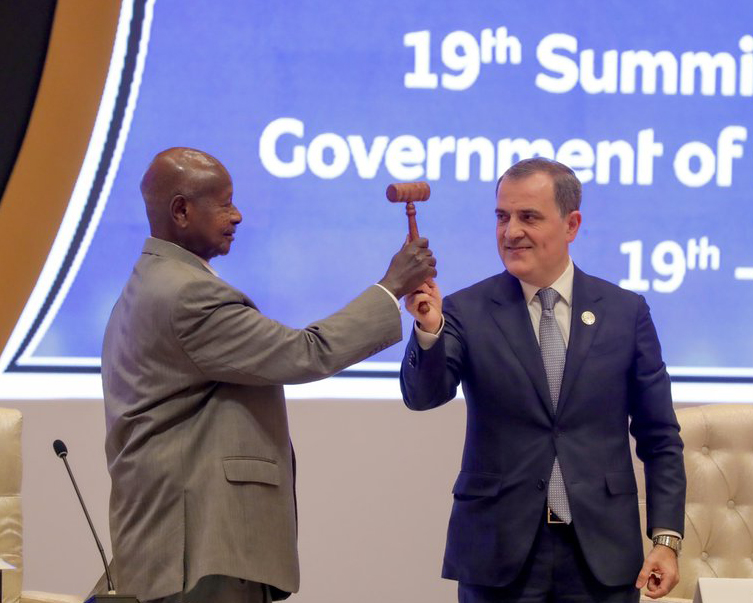Amid global disputes over LGBT rights, Uganda takes Non-Aligned Movement chair
Otako Ofampa (pseudonym) is an African LGBT rights activist.
As human rights abuses pile up, Ugandan leader claims allegiance to principles of human rights

By Otako Ofampa
Facing stiff criticism from Western countries for its harsh new anti-gay law, Uganda has taken on a three-year chairmanship of the Non-Aligned Movement (NAM), a global body of 120 countries. That honor eases the pressure on the country’s global public image, which has suffered since the Anti-Homosexuality Act 2023 came into force.
Ugandan President Yoweri Museveni took advantage of the moment to pledge devotion to international principles, including respect for human rights, at a time when he and the Ugandan government stand accused of gross violations of the human rights of the nation’s LGBT citizens.
In September, a report by Ugandan human rights activists tallied 500 human rights abuses tied to the passage of the Anti-Homosexuality Act, which criminalizes not only same-sex intimacy, but also public support for LGBT people and even renting to LGBT people.
“Our research clearly shows a massive escalation in serious abuses of LGBTIQ+ Ugandans who previously were working, caring for loved ones and living as productive citizens. Now many have been evicted, fired from their jobs, unable to access healthcare, all while facing increasing risks of arrest, mob justice and public humiliation simply for living their lives,” stated LGBT rights Pepe Julian Onzeima, one of the report’s authors.
Opponents of homosexuality see Uganda as a model for cracking down on their LGBT citizens. Legislation similar to Uganda’s new law are under consideration in Kenya, Tanzania and Ghana.
“The future is bright if we act right,” Museveni, told NAM nations’ leaders meeting in Kampala shortly after he was elected by acclamation as the chair of the 19th NAM Heads of State and Government Summit, taking over from Ilham Aliyev, the president of Azerbijan.

Uganda is the fifth African nation to host a NAM summit since the bloc’s formal establishment in 1961, after South Africa, Zimbabwe, Algeria and Egypt.
Leaders from Africa, Asia-Pacific, Latin America, the Caribbean, and Europe said they aim to revitalize the Bandung Spirit during the latest gathering of 120 nations, representing 55 per cent of the global population, to address global challenges.
The Non-Aligned movement builds its work on ten Bandung principles, first formulated in 1955, including respect for fundamental human rights and the principles of the Charter of the United Nations, respect for the sovereignty and territorial integrity of all nations, and respect for justice and international obligations among others.
In his speech, President Museveni told the assembled leaders that Uganda’s stand is that the world should concentrate on the common human problems ─ prosperity through trade, the advance of science and technology to deal with human problems, the environment, crime and terrorism. He added that such ideas are in line with the Bandung Principles, a basis on which NAM was formed.
“It is on these principles that NAM was founded. We, the resistance fighters of Uganda, can testify that by synthesizing the package of ideas, we have got very good results. Using the ideas of the free market, combined with the ideas of selective state intervention in the economy in some sectors like banking, energy, transport, etc. and also bringing back some aspects of the pre-capitalist institutions such as reformed cultural institutions, Uganda, although starting from a very low base, has had growth rates of 6.2% per year, for the last 37 years.” [Editor’s note: According to the World Bank, Uganda’s growth rate averaged 5.6% over the past 37 years and 4.6% over the past 10 years.]
He further urged that the world should only have free associations of nations where people of a common or shared origin, interact for mutual advantage with the peoples of the world. (Editor’s note: Despite his advocacy of a world where nations enjoy “free associations” and “interact for mutual advantage”, Museveni has not criticized Russia for its invasion of Ukraine.]




